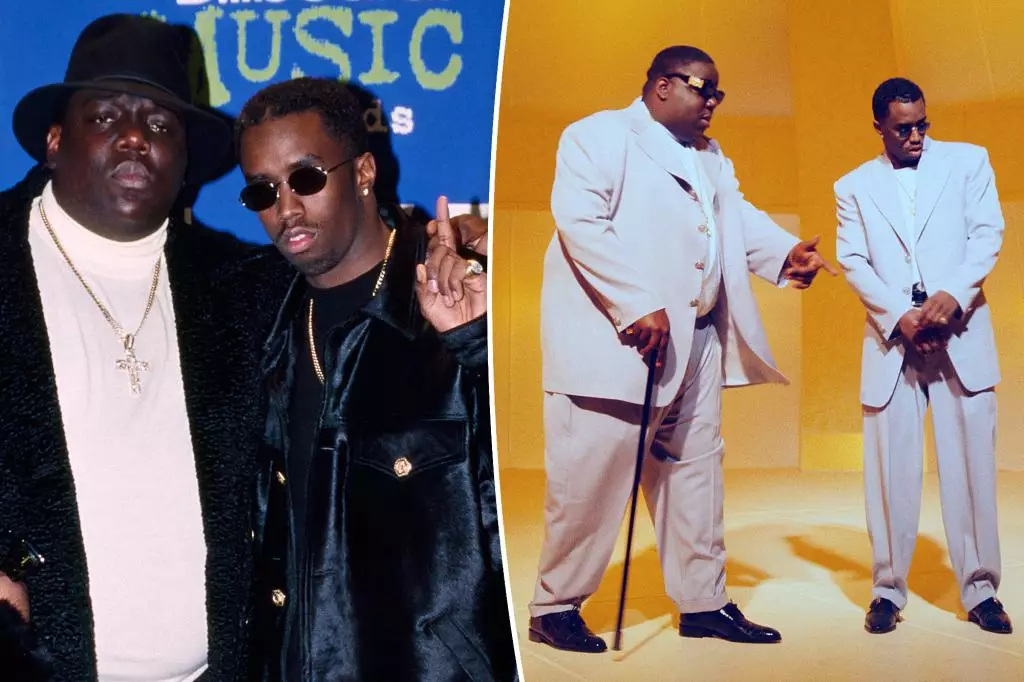In the sprawling landscape of modern celebrity culture, few figures embody the glitz and glamour as thoroughly as Sean “Diddy” Combs. His journey from humble beginnings to a towering emblem of hip-hop and business success fuels public admiration. Yet, beneath this glossy veneer lies a troubling and complex reality that challenges the narrative of invulnerability often projected onto celebrities. The recent scandals aimed at Combs are not merely isolated incidents but reveal systemic issues about power, accountability, and the costs of unchecked fame.
The headlines paint a picture that is startling—allegations ranging from sexual misconduct to shocking behavior involving the late Notorious B.I.G.’s memorabilia. While legal processes are ongoing and the courts have yet to deliver definitive judgments in each case, the pattern of allegations stands as a stark reminder that fame does not inherently confer innocence or moral superiority. Instead, these accusations highlight the dangers of unchecked influence, especially when wielded by individuals who operate within a culture that often shields them from accountability.
Moreover, the narrative of the “untouchable” celebrity, propagated through years of media glorification, fosters an environment where allegations are dismissed as mere rumors or as part of character assassination. Such dismissals can serve as a disservice to justice, and they obscure the reality that individuals in positions of immense power often manipulate circumstances to silence or discredit accusers. This dynamic perpetuates a culture that minimizes the experiences of victims and discourages transparency.
Questioning the Role of Power in Shaping Public Perception
The case of Diddy underscores an uncomfortable truth: celebrity status can distort the perception of morality and legality. His legal team’s assertions about his innocence—highlighting his acquittal on serious trafficking charges—are part of a carefully curated narrative aimed at preserving his reputation. However, a single legal victory does not erase the broader pattern of allegations and the questions they raise about the celebrity’s character and conduct.
This discrepancy between legal outcomes and public perception reveals how power and fame intertwine to create a protective bubble around influential figures. The public often grants celebrities a sense of immunity, conditioned by adoration or fear of backlash. When allegations surface, the initial response is usually defensive—denials, legal actions, and attempts to discredit accusers. This defensive stance often shirks the deeper issue at stake: the potential for abuse of power and the failure of institutional systems to hold high-profile individuals accountable.
Furthermore, the influence of wealth and celebrity can delay or diminish consequences. Litigation, media spin, and societal biases complicate straightforward assessments of guilt or innocence. For many, the damage inflicted by such allegations extends beyond legal measures and into the realm of public trust. When the very fabric of a person’s persona is challenged, it fuels a broader debate about morality, privilege, and the true cost of fame.
Why Society Must Confront Its Celebrities’ Darkness
These allegations serve as a crucial eye-opener—demanding society to confront uncomfortable truths about its heroes. Celebrating success without scrutinizing the means or the character of those who achieve it fosters a dangerous disconnect. For every rags-to-riches story celebrated, there are countless stories of abuse, misuse of power, and moral compromise that go unexamined.
Famous figures like Diddy symbolize an idealized vision of achievement, yet they also exemplify how celebrity can become a guise for impunity. Society must ask itself whether the adulation and financial success granted to these individuals justify overlooking their potential faults or misconduct. It’s high time we reframe our admiration—placing accountability and moral integrity at the core of our celebrity culture.
This shift is essential not only for justice but for societal progress. When fans and media outlets demand transparency and truth, they challenge the harmful myth that success grants a free pass. Only through relentless scrutiny and honest conversation can the dark side of fame be uncovered and addressed. Celebrities, like all other members of society, should be held responsible for their actions, regardless of their status.
In confronting the shadows behind the luminous facade, society takes a vital step toward a future where true respect is rooted in integrity, courage, and accountability—values that must not be sacrificed at the altar of fame.

